Greetings Rare Ones,
To new readers this is the Rare Birds Emerging Market Podcast Newsletter. Each week I send out this long form newsletter to our community of Rare Ones as I have conversations with entrepreneurs, ecosystem builders and investors from across emerging markets. This long form newsletter is a deep dive into one or several themes discussed in the podcast episode. Before we begin, don’t forget to subscribe and share this newsletter with your friends and remind them to tell their friends too.
In addition, each Sunday I send out the Sunday News! It is an action packed news breakdown of the best curation of blockchain news and blockchain podcasts from across emerging markets.
Here is a teaser of some of the Sunday News content to be found in this week’s issue covering w/c 24 May.
💡 Crypto will ‘come to life’ in Nigeria, central bank governor says
💡 AkoinNFT to sell historic DNA data art as NFT in collaboration with Oasis Network
For more from this issue go👉🏾 here.
The Sunday News also includes 💡 My Sunday Sevens🌱 which is a list of 1, 2, 3, 4, 5, 6, 7 things I have been exploring for the week. Last week I explored:
For more from this issue go👉🏾 here.
Let’s go through a series of Essential BIG Questions together so we can collectively understand the coffee potential in emerging markets.
“The potential of the average person is like a huge ocean unsailed, a new continent unexplored, a world of possibilities waiting to be released and channeled toward some great good. “ 1
Erica shared a story with me from her first day at University. She recalled that whilst making introductions her peers mentioned their parents were doctors, engineers, teachers and other professionals. When her turn finally arrived she proudly exclaimed agricultoras de café (coffee growers) ! Her fellow students seemed puzzled. It was at this very point that an immediate shift occurred. She knew that the untold stories of the coffee farmers must not continue to be unheard. She grappled: How is it that we can exist in a world where everyone drinks coffee but is blissfully unaware of its source?
Coffee 101
Coffee originated in Ethiopia, its trade and cultivation began on the Arabian peninsula. European travelers brought it back to their respective countries. The population seemed to enjoy, then came the demand with an opportunity to cultivate. The Dutch were the first to cultivate the coffee plantations, they profited handsomely. The French wanted in and very long story short they planted a seed in Martinique which was successful. This one tree began the cultivation of coffee in Latin America. Coffee was introduced to Puerto Rico under Spanish colonial rule. The Corsicans who settled on the island during this time cultivated it. They too, profited!
Must Read: Uncommon Grounds by Mark Pendergrast
Excerpt, “Possibly the cradle of mankind, the ancient land of Abyssinia, now called Ethiopia, is the birthplace of coffee. Situated at the conjunction of the African and Arab worlds known as the Horn of Africa, the mountainous country, split down the middle by the earthquake-prone Great Rift Valley, has a biblical quality—and little wonder. Across the nearby Red Sea, further to the north, Moses led his people to freedom. The Queen of Sheba later descended from the Ethiopian mountains to join King Solomon in Jerusalem, and, according to legend, she founded the Axum dynasty that established its rule in the first century A.D. (a monarchy that continued, with a hiatus between 572 and 1270, until 1974, when Haile Selassie was deposed). “
🌱 Essential BIG Question: How is coffee made?
Below we go on a journey from bean to cup, shrub to mug, etc ad nauseum.
👇Have a Glance (i) 👇
Source: Visual Capitalist
To begin, coffee seeds are planted in large beds under the shade. Tropical climates are ideal for coffee growing with altitude being a plus. The higher the elevation, the higher the quality. Quality soil and an abundant supply of rain are necessary too. The best regions to grow coffee are known as the coffee belt.
👇Have a Glance (ii)👇
Source Mela Coffee
Arabica beans are grown at high altitudes, meanwhile Robusta can be grown at lower altitudes.
👇Have a Glance (iii)👇
Source: German Coffee Association
The so-called Coffee Belt are the best growing regions in the world with a list of over seventy countries on the list. Below are the top 10 coffee producing nations in 2021 (in order of highest production) by metric tonnes.
Brazil-2.6M
Vietnam-1.5M
Colombia-750K+
Indonesia-668K+
Honduras-475K+
Ethiopia-471K+
India-312K+
Guatemala-245K+
Uganda-209K+
Mexico-153K+
Source: World Population Review
The pie chart below puts the above figures in greater perspective.
👇Have a Glance (iv)👇
The entire coffee production process is very intricate with an arduous amount of work involved. Not all of this work by the way is automated. The producers of coffee have for the most part been based in developing countries, conversely the consumers of coffee (again for the most part) have been based in developed countries mainly, Canada, USA, within the European Union, Switzerland and Japan. This however, is slowly changing which I will expand on later.
🌱 Essential BIG Question: What is the size of the global coffee market?
According to research carried out by Research and Markets the global coffee market is expected to grow to 28.8 B by 2027.
👇Have a Glance (vi)👇
Source: Research and Markets
Within the overarching market there are subsectors, which can be narrowed down to four groups:
Group 1: The premiumisation-led
Group 2: Income -led
Group 3: Population-led
Group 4: Soft driver-led
Group 1 These are your traditional markets, which I mentioned earlier, mainly based in developed countries. They have a long standing relationship with coffee from a consumption perspective. It is popular, well known and they tend to have the income to buy at high prices.
Group 2 These are countries where the drink of choice has always been tea but as their societies develop economically and a middle class emerges their taste for coffee grows. For example the country that I live in China has a tea drinking culture, however coffee is known as the drink of the urban elite (more on China later). These are the countries that are moving from developing to developed with a mixture of highly developed cities and rural areas. China is a perfect example of this group.
Group 3 These are countries where the population is projected to grow significantly in a few years. They may not have the income to purchase at the extent of Group 1 but they have a taste for coffee. Many of these countries are based in Latin America and Africa particularly where the majority of the population are young, agile and tech savvy!
Group 4 In these countries the overall coffee market is still nascent. Global coffee culture ( this isn’t the same as local coffee culture) may not be firmly established but trends in the market appear to be impacting a desire for coffee. Azerbaijan is an example of one such country.
Thinking Point
How do these four submarkets create opportunities for coffee entrepreneurs in emerging markets?
Group 2: The China Coffee Possibility
👇Have a Glance (vii)👇
Source: Daxue Consulting
In 1998 Nestle sold its first packet of coffee in China and one year later Starbucks arrived. There are a plethora of specialty coffee shops across China’s tier 1 cities. They are stylish, grande, beautiful, boutique and all the rest. Of course there are domestic chains (R.I.P Luckin), Pacific Coffee, Grey Box, Fisheye and Coffee Box to name a few. As well as Canada’s Tim Horton’s, Sweden’s Wayne’s Coffee, and other chains who have popularised coffee like KFC and McD’s. Lest we forget the behemoth which is Starbucks (one opening every 15 hours)! It is important to note that China is still largely a country of tea drinkers, particularly outside tier 1 cities.
I often joke that a Chinese city has not made it until Starbucks has arrived. The United States has the largest number of Starbucks stores with China coming in second. According to the Starbucks corporate website there are 5000 stores in 200 cities in mainland China. This exact figure is debatable but it seems on average close to 5000 (DOYR)!
As stated in Pandaily there will be 600 more stores added this year. As with all things new there are trends and preferences emerging. Despite the Luckin collapse, I do believe it is necessary to understand and explore insights.
Suggested Reading: The Analysis on the Marketing Strategy of Luckin Coffee in China by Qiu Lingyu
Excerpt: “By the end of 2018, Luckin coffee had set up 2,073 physical stores in 22 cities across China, with 12.54 million customers and 89.68 million cups.”
Once you have completed the above reading move along to Ying-Ying Lu and Rui Ma as they provide expert analysis on Luckin and the China Coffee Market.
Must Listen: Ep. 32: Luckin Coffee: Starbucks Challenger or a New Breed of F&B for the 21st Century?
Suggested Listen: Ep. 65 (Extra Buzz Special): Luckin’s Luck Ran Out
China has a very low coffee consumption rate however this is slowly changing if you compare it to where it was 10 years ago. Coffee consumption in China has risen by a staggering 1,032% over the last ten years, according to Communicafe.
🌱 Essential BIG Question: Are there any coffee entrepreneurs from emerging markets entering the Chinese market?
Rwanda
In 2018 Rwandan coffee (3000 bags to be precise) made its debut in China and sold out in seconds via TMall, an Alibaba cross border import platform. This was made possible due to a deal made between the Government of Rwanda and Alibaba which established the Electronic World Trade Platform (eWTP), which has created opportunities for small businesses’ on the continent to participate in e-trade with China. Rwandan coffee exporters has since then been selling their coffee on Alibaba’s TMall, which allows Chinese consumers to access overseas goods. Coffee entrepreneurs are able to sell directly to the consumers. Some of these Rwandan Coffee Brands include:
Boneza
Virunga
Gorilla’s Coffee
Bourbon Coffee
Uganda
Frandan Tumukunde is a coffee entrepreneur whose dream is to, “ One day run coffee shops across China, where Chinese people will come to enjoy the uniqueness of Uganda’s coffee.”
In the episode below you will hear context, history, perspective and a conversation with Dr. Emmanuel Iyamulemye Niyibigira, the Managing Director of Uganda Coffee Development Authority (UCDA) and entrepreneur Frandan Tumukunde. Alongside co-hosts Eric Olander and Cobus van Staden of the China-Africa Podcast.
Must Listen: The China Africa Podcast: Uganda Wants to Make It Big in China’s Booming Coffee Market
Thinking Point
Are there any opportunities for emerging market entrepreneurs to benefit from the youth population in Group 3?
In 2019 Brasil's largest cooperative Minasul launched the world’s first digital currency backed specifically by coffee. Farmers in the collective use the token to buy fertilizer, machinery and non-farm products. The future lies in cutting out the middle man. Can a token project be created to incentivise the urban young educated population in this group to build B2B platforms for coffee entrepreneurs? Some other agro token projects include: Herbalist Token Project and Agrolot
🌱 Essential BIG Question: Outside of farming what other opportunities exist for coffee entrepreneurs in emerging markets?
Coffee Confectionary
Coffee Mugs
Coffee Makers/Grinders, Pressmakers, et al
Coffee Publications
Coffee Box Subscription
Coffee Bags
Coffee Art
Coffee Health and Beauty Products (Soaps, Scrubs, etc)
Coffee Notebooks
Coffee Byproducts
Coffee Tourism
Coffee Lovers Associations
Coffee Influencers (KOLs)
Erica is a bean-to-table coffee entrepreneur wearing many hats that contribute to the entrepreneurial ecosystem.
Farm Owner
Cafe Owner
Barista School Owner & Instructor (First Spanish Speaker Instructor)
Coffee Taster & Judge
👉🏿 Haitian entrepreneur Rémy Telfils is reimaging coffee in SE Haiti with Cafe Lux.
👉🏿 Kenyan entrepreneur Vava Angwenyi is improving supply chains for coffee producers in Kenya with Vava Caffeine Inc.
👉🏿Sahra Nguyen, the first Vietnamese American and woman-owned importer, roaster, and supplier of beans from Vietnam with Nguyen Coffee Supply.
Final Thoughts
Like Puerto Rico, countries such as Haiti, Rwanda, South Sudan and the Democratic Republic of Congo are all reviving their coffee industries with investments and other other initiatives. In Honduras coffee has transformed the entire economy. None of these examples are bereft of critique or challenges. The coffee economy creates jobs and sustains the livelihoods of many families who otherwise would have no other source of income. This interconnectedness extends to transportation, packaging, roasting, dairy, sweeteners and much more!
In 1990 Puerto Rico’s coffee production fell sharply and after Hurricane Maria in 2017, it plunged even further. Many organisations and institutes have been contributing to rebuilding the industry. Like all else on the island progress has been made. Erica started her entrepreneurial journey by working to ensure coffee stories don’t remain untold. In the process she has reminded us that the opportunities exist everywhere so long as we are willing to embrace them.
Erica and I covered quite a bit in this conversation:
EPISODE HIGHLIGHTS
The Coffee Culture in Puerto Rico
Maintaining the Essence of Coffee in the Shop
The School of Coffee and Baristas of Puerto Rico
The Challenges of Running a Coffee Business
Coffee Traveling Around the Globe
Being the First Spanish Speaking Barrista Instructor
Sharing How Different Cultures Experience Coffee
What’s Next for the School of Coffee and Barristas
The Uniqueness of Puerto Rican Coffee
Dealing with Competition
History and Puerto Rican Entrepreneurship
Lessons Learned from the Entrepreneurial Journey
As always, thanks for reading and for more exchanges, questions and ideas message me via joann@rarebirdshq.com
Bye for now.
JoXx
Brian Tracey





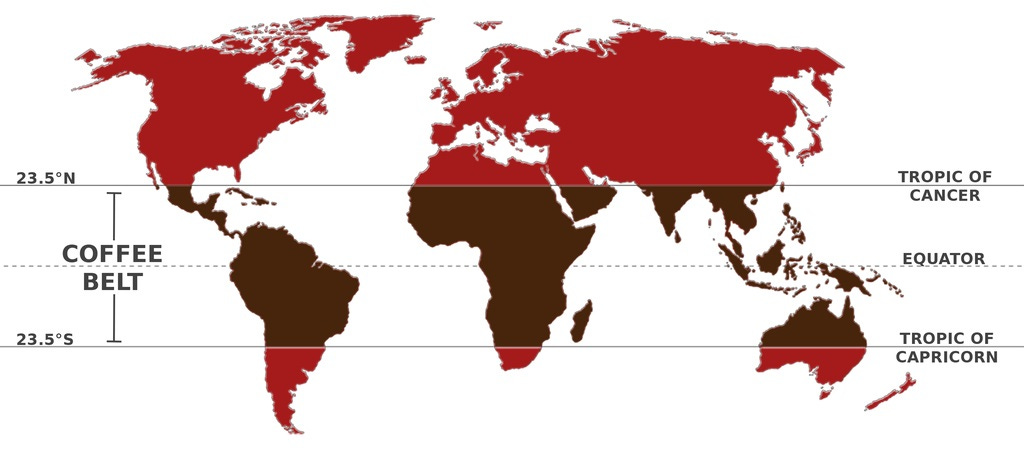


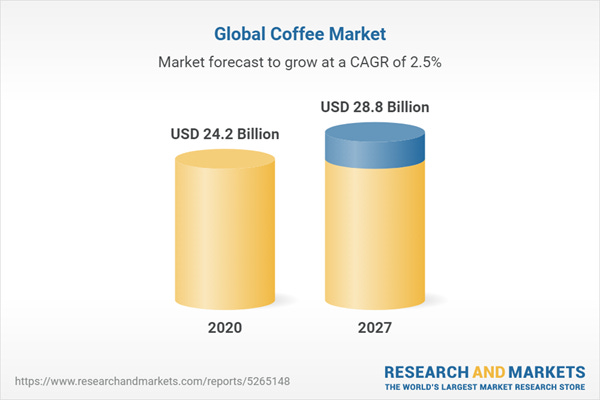





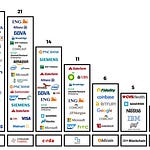
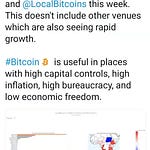

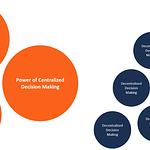

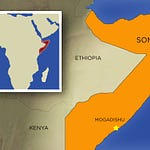
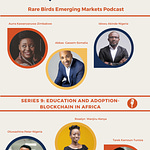
#176 The Coffee Potential in Emerging Markets. Exploring the Puerto Rico Startup Ecosystem